Hardwood floors add elegance and warmth to any home, but they require proper care to maintain their beauty over time. One of the common challenges hardwood floor owners face is dealing with stains. Whether it’s from spills, pet accidents, or everyday wear and tear, knowing how to effectively remove stains from hardwood floors is essential. In this guide, we’ll explore some tried-and-tested methods to tackle stains and restore your hardwood floors to their pristine condition.
Act Quickly:
The key to successfully removing stains from hardwood floors is to act promptly. As soon as a spill or accident occurs, grab a clean cloth or paper towel and blot the affected area gently. Avoid rubbing, as this can spread the stain and damage the wood.
Identify the Stain:
Different types of stains require different treatment methods. Common stains on hardwood floors include water stains, pet stains, food spills, and ink marks. Understanding the nature of the stain will help you choose the appropriate cleaning solution and method.
Gentle Cleaning Solutions:
When dealing with water-based stains or mild spills on your hardwood floors, a gentle yet effective cleaning solution can be concocted using basic household ingredients. Simply combine warm water with a few drops of dish soap to create a cleansing mixture that works wonders.
To treat the affected area, dampen a clean cloth with the prepared solution and gently wipe the stained surface. It’s crucial to ensure that you follow the natural grain of the wood during this process, as this minimizes the risk of causing damage to the floor’s surface.
While cleaning, it’s important to exercise caution and avoid using excessive water. Too much moisture can lead to undesirable consequences such as warping or swelling of the wood. By employing this gentle cleaning solution and adhering to proper cleaning techniques, you can effectively remove water-based stains and spills from your hardwood floors without compromising their integrity.
Vinegar Solution:
Vinegar is renowned as a natural and potent cleaner for hardwood floors. To create a vinegar solution, simply mix equal parts of white vinegar and water in a spray bottle. Once your solution is prepared, lightly mist the stained area of your hardwood floor. Allow the vinegar solution to sit for a few minutes, granting it time to work its magic on the stain. Following this, take a clean, damp cloth and wipe away the solution, along with the loosened stain particles.
Vinegar boasts impressive stain-fighting properties, capable of breaking down various types of stains while simultaneously eliminating unpleasant odors. Its acidic nature aids in dissolving stubborn stains and residues, leaving your hardwood floors looking refreshed and rejuvenated. Additionally, vinegar is a natural disinfectant, further enhancing its cleaning prowess and ensuring a hygienic environment in your home.
Baking Soda Paste:
When faced with stubborn stains or grease marks on your hardwood floors, a simple yet effective solution lies in a baking soda paste. To create this powerful paste, combine baking soda with a small quantity of water until a thick consistency is achieved. Once your paste is ready, generously apply it to the stained area of your hardwood floor.
Allow the baking soda paste to sit undisturbed for approximately 15 minutes, allowing it ample time to penetrate and loosen the stubborn stain. After the designated time has passed, take a soft-bristled brush or cloth and gently scrub the area, working the paste into the stain.
Hydrogen Peroxide:
Hydrogen peroxide is effective for removing tough stains like ink or wine. Apply a small amount of hydrogen peroxide directly to the stain and let it sit for a few minutes. Blot the area with a clean cloth until the stain is lifted. Be sure to test the hydrogen peroxide on a small, inconspicuous area of the floor first to ensure it doesn’t cause any damage.
Professional Refinishing:
If all else fails or if your hardwood floors have deep-seated stains that won’t budge, it may be time to call in the professionals. Professional floor refinishers have the expertise and specialized equipment to sand away stains and restore the beauty of your hardwood floors.
FAQs
FAQs about How to Remove Stains from Hardwood Floors?
A: No, it’s important to use cleaning solutions specifically formulated for hardwood floors. Harsh chemicals or abrasive cleaners can damage the finish and the wood itself. Opt for mild solutions such as a mixture of warm water and a few drops of dish soap, vinegar and water solution, or specialty hardwood floor cleaners.
A: It’s recommended to clean hardwood floors regularly to prevent stains and maintain their appearance. A gentle sweep or vacuuming once or twice a week to remove dust and debris is sufficient for regular maintenance. Additionally, a damp mop with a mild cleaning solution can be used periodically to keep floors clean and refreshed.
A: Not necessarily. Many minor stains can be effectively removed using household cleaning solutions and techniques. However, for stubborn stains or deep-seated discoloration, professional cleaning services may be necessary. Professional cleaners have the expertise and specialized equipment to tackle tough stains and restore the beauty of hardwood floors without causing damage.
A: In areas prone to stains or high traffic, choosing a durable and stain-resistant finish is crucial. Water-based polyurethane and oil-based polyurethane finishes are popular choices for their durability and resistance to stains. These finishes create a protective barrier that helps prevent stains from penetrating the wood while enhancing its natural beauty.
A: While it’s difficult to completely remove deep scratches from hardwood floors without sanding and refinishing, minor scratches can be minimized or disguised. Using wood filler or touch-up markers that match the floor color can help camouflage scratches. Additionally, area rugs or furniture can be strategically placed to conceal scratches and protect the floor from further damage. For deep scratches or extensive wear, consulting a professional refinisher may be necessary to restore the floor’s appearance.
Conclusion:
With the right tools and techniques, removing stains from hardwood floors doesn’t have to be a daunting task. By acting quickly, identifying the type of stain, and using appropriate cleaning solutions, you can keep your hardwood floors looking their best for years to come. Remember to always test any cleaning solution in a small, inconspicuous area first and to follow the manufacturer’s recommendations for maintaining your hardwood floors. With a little care and attention, you can preserve the natural beauty of your hardwood floors and enjoy them for generations.


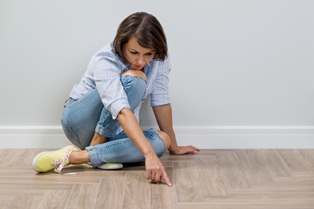
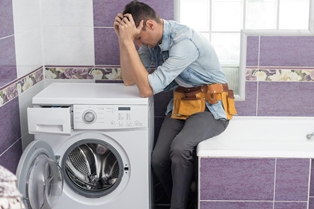
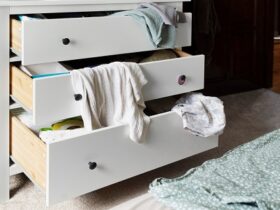

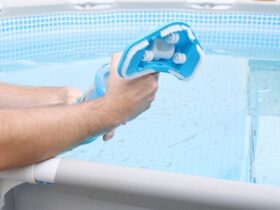

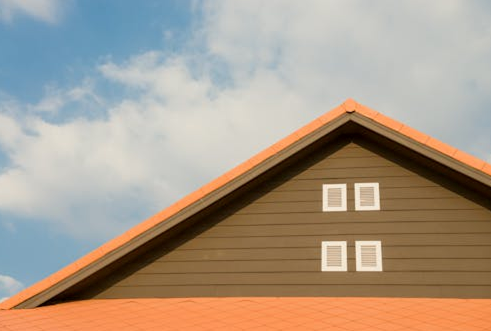


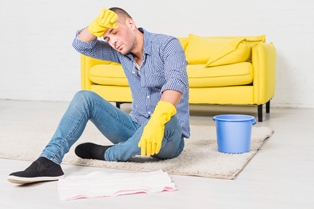
Find Us on Socials